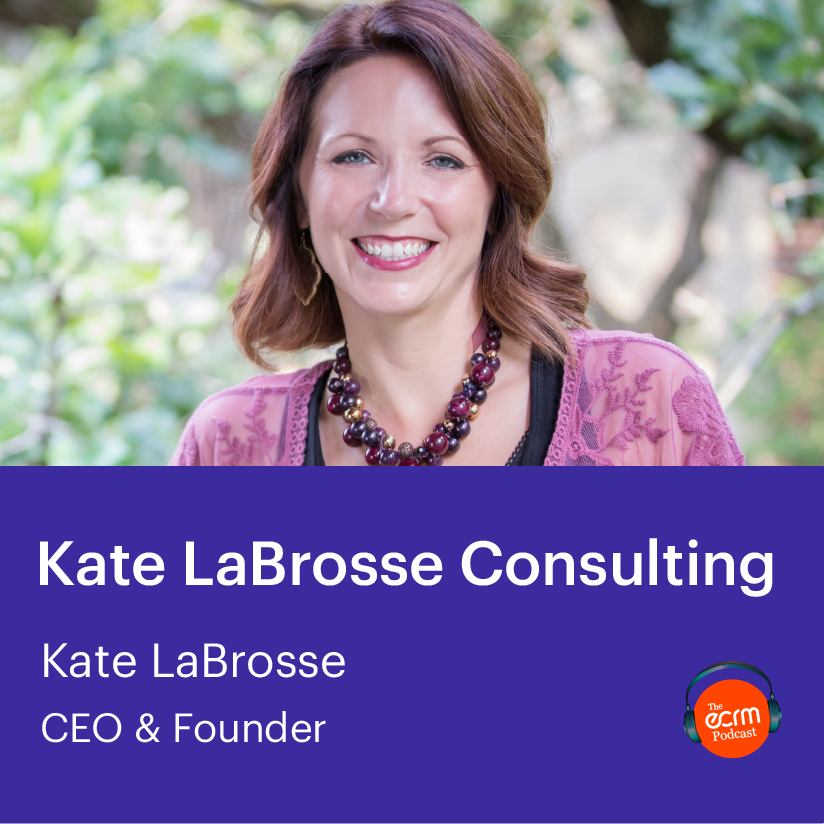Power Trends that are Shaping the Natural Products Industry 2/11/2021
 Last year’s seminal events of COVID’s entry into the U.S. along with unrest around social equity have greatly accelerated consumers’ interest in wellness, diversity, and the environment, and we are seeing this play out in the types of products they are seeking from retailers and brands. Indeed, clean ingredients, transparency, sustainability and social responsibility are top-of-mind among shoppers these days.
Last year’s seminal events of COVID’s entry into the U.S. along with unrest around social equity have greatly accelerated consumers’ interest in wellness, diversity, and the environment, and we are seeing this play out in the types of products they are seeking from retailers and brands. Indeed, clean ingredients, transparency, sustainability and social responsibility are top-of-mind among shoppers these days.
In our recent interview, Kate LaBrosse, a former buyer and Founder & CEO of Kate LaBrosse Consulting, discussed several key natural products trends that are reshaping the CPG industry. These are the trends that are showing explosive growth across categories and channels, and are important considerations not just for brands but for retailers who want to prioritize more natural offerings. Below is a summary of the key trends – for the full interview with the slides, see the video below.
Plant-based foods
The growth in demand for plant-based foods over the past few years has only accelerated with consumers’ enhanced focus on health driven by the pandemic. (ECRM two years ago launched a Plant-based Food & Beverage Program to address buyers’ interest in sourcing more plant-based food brands). And this demand is not just from vegans and vegetarians; even us meat-eaters are looking to incorporate more plants into our diets.
LISTEN TO THE PODCAST
“Today’s consumer is really flexing their dietary choices from one day to the next,” says LaBrosse. “We’re seeing consumers have a ‘vegetarian Tuesday’ and then they will eat meat on other days of the week.”
In addition to health, two other factors helping to drive growth in this space are the environment and product innovation. “Consumers are looking for ways in which they can positively impact the world, and they are doing this through their food choices,” adds LaBrosse. “Plant-based foods are one of these choices. Plus, there are some great-tasting products available that are very analogous to their counterparts in the meat and dairy categories. There is a lot of great innovation there.”
Ethical & sustainable supply chains
Visibility into a brand’s supply chain enables consumers to validate the ethical behaviors that are important to them, such as sustainable sourcing, fair trade practices, and supplier diversity. This transparency can be managed either through vertical integration or direct trade, or by working with ingredients that are verified or certified by third parties.
Responsible packaging
This is a power trend across all channels, not just in the natural channel. Brands have come a long way with sustainable and eco-friendly packaging; long gone are the days of brown paper wrapping signifying that a product is natural. Brands like Primal Kitchen, for example, are replacing plastic bowls with bowls made from sugarcane fiber that completely breaks down.
There is also innovation around form, such as shampoo bars that eliminate the water (and the added fuel consumption around transporting it), or Proctor & Gamble’s Old Spice deodorant, which is available in cardboard tubes. Another great example is Hayden Products, which won the Drug Store News Buyers Choice Award for its Gelo Hand Soap Refill Pods at ECRM’s Everyday and Holiday Cosmetics, Fragrance & Bath Virtual Session held in January. Gelo Hand Soap Refill Pods were developed to refill hand soap without the single-use plastics and packaging that usually accompany refilling. Consumers just fill the reusable bottle with water and drop in Gelo Refill Pods for low waste hand soap in seconds.
Many retailers are driving this trend. ECRM’s Wayne Bennett recently spoke with Ahold-Delhaize Product Sustainability Manager John Laughead about the grocer’s sustainability goals for 2025, goals for which its requiring all of its suppliers to get on-board. (Laughead will be participating in ECRM’s Sustainable & Eco-Friendly Packaging Program in March.)
Supplier diversity
While there has been growing interest among retailers in supplier diversity over the past few years (ECRM & RangeMe have been working with many on their supplier diversity initiatives), the social unrest during 2020 has clearly accelerated interest in supplier diversity among retailers. “There is a great opportunity here for retailers and brands to step up in this area, not just for the natura products industry, but for the CPG retail industry in general,” says LaBrosse.
Wellness
Not surprisingly, the pandemic has boosted consumers’ interest in all things wellness-related. People are seeking out products that nourish the body and mind, as well as those that support total well-being and the ability to deal with the chaos of our modern lives. They are more vigilant about the products they put in their mouths or put on their skin. Prevention and longevity are driving interest in healthy foods, vitamins and supplements. “What we’re seeing is a kind of integration of science and ancient wisdom,” says LaBrosse. “Consumers are researching Ayurvedic practices. healing herbs, and fermentation, as well as the role of the endocannabinoid system, which is why CBD has been such a big part of the wellness trend.”
Upcycling
This is a relatively new yet fast-growing trend which involves repurposing some of the 40 percent of all food that goes to waste each year. NETZRO is a great example of a player in this space. One of its platform services is processing eggshell waste from egg producers, separating the membrane from the shell to create two high-value products: calcium carbonate (from the shell) and collagen protein (from the shell membrane) for animal and human consumption. It then sells upcycled calcium and collagen to food manufacturers and licenses its platform to large egg processing facilities. A new Upcycling certification is rolling out this year for products using ingredients from this process.
Labeling and certifications
Natural products consumers expect product labeling and certifications to provide greater transparency around the culture of the company and the entire product lifecycle – not just information about a product’s specific benefits. “Consumers want to see this show up in their branding and messaging,” says LaBrosse. “They want to look at a product and know what these companies are thinking about, that they are treating employees fairly, are socially and environmentally conscious, and so on. And this is being reflected in labeling and the types of certifications that are being developed.”
Indeed, certifications are a kind of “short-cut” into demonstrating this sort of transparency, and RangeMe has recently posted a wealth of content around the value of certifications, including a recent webcast about how brands can leverage certifications to better engage buyers.
Regenerative agriculture
This is a trend that has recently moved from the hardcore natural products consumer to the mainstream, and much of the credit for this was the Netflix documentary, “The Biggest Little Farm.” Regenerative agriculture is a conservation and rehabilitation approach to food and farming systems. It focuses on topsoil regeneration, increasing biodiversity, improving the water cycle, enhancing ecosystem services, supporting biosequestration, increasing resilience to climate change, and strengthening the health and vitality of farm soil. In short, it means leaving the farm in better shape eco-system-wise than what you started with
“In 2018, a new holistic high bar standard was set for agricultural certification,” says LaBrosse. “Regenerative Organic Certified is overseen by the Regenerative Organic Alliance, a non-profit consisting of experts in farming and ranching, animal welfare, soil health and farmer and worker fairness. It’s a triple bottom line, bringing all of these features together.”
COVID’s impact
We really can’t discuss natural products trends without acknowledging the impact of COVID has had on the industry. Of course, preventative supplies like hand sanitizer, cleaning products, and vitamins and supplements have all experienced growth and will continue to be part of most retailers’ assortments moving forward, plus there the halo effect on sales of other products related to being stuck at home, such as baking supplies, board games and puzzles, and home spa treatments.
But one long-term impact of the pandemic and social issues of 2020 is that it has raised every consumer’s awareness of wellness, not just in the context of their physical and mental health, but also that of the planet and of society as a whole. And it’s forced brands to think about how they market themselves, how they tell their stories and connect with consumers, according to LaBrosse.
As the natural products industry has historically engaged consumers around these issues, we can expect to see even more activity and growth in the natural space during the years ahead.

